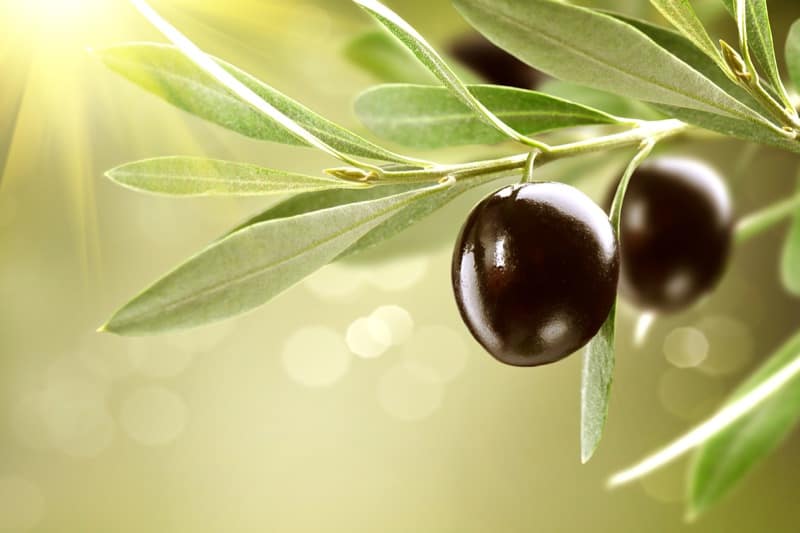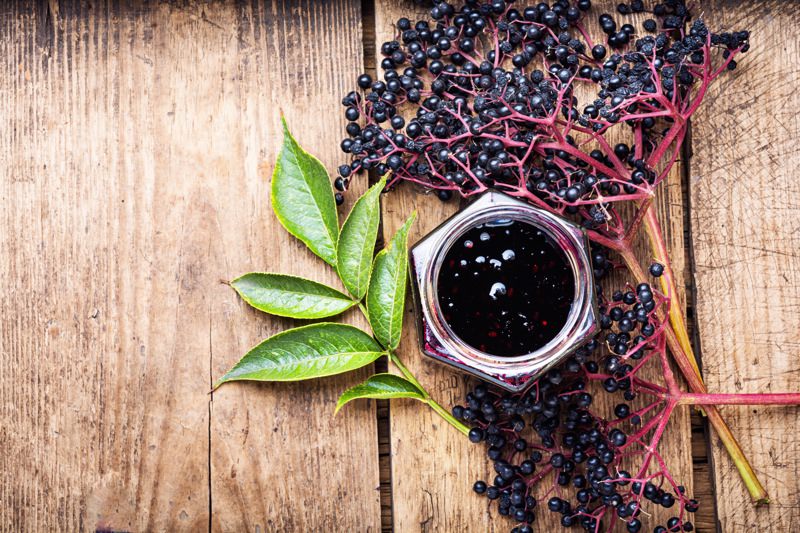How Are Coconuts, Olives, Sunshine, and Berries Related?
We tend to think of our immune system as a superstar only during the cold and dreary winter months. While it certainly does work overtime to keep us healthy from nasty seasonal bugs, the health of our immune system is imperative all year round. The immune system defends the body from foreign, invading organisms. We come into contact with some every single day. What can we do to help our immune system be its best? Besides a healthy diet abundant with fruits and vegetables, restful sleep, and physical activity, taking some supplements for the immune system may also greatly assist.
We commonly know that vitamin C and zinc are significant to immune health. What about the ones that we aren’t so familiar with? Monolaurin from coconuts, olive leaf extract, vitamin D (which we typically associate with sunshine), and elderberries. Check out these supplements!
Monolaurin
Monolaurin is an immune system supplement coming from the monoglyceride of lauric acid. What this means is the single fatty acid, lauric acid, is binding to a glycerin compound for better use by the body. Many naturopaths recommend monolaurin to support healthy immune function, especially in regards to specific bodily invaders.
 The monolaurin compound most ready-to-use by the body is naturally occurring in coconut oil and human breast milk. In terms of a monolaurin supplement, those typically come from coconut oil. A passive immune system is given from mother to child at birth. The baby maintains this immune function from nutrients in the mother’s milk until the child can begin forming their own antibodies through exposure. The coconut oil used in supplements is the closest plant-based equivalent to human breast milk.
The monolaurin compound most ready-to-use by the body is naturally occurring in coconut oil and human breast milk. In terms of a monolaurin supplement, those typically come from coconut oil. A passive immune system is given from mother to child at birth. The baby maintains this immune function from nutrients in the mother’s milk until the child can begin forming their own antibodies through exposure. The coconut oil used in supplements is the closest plant-based equivalent to human breast milk.
You can get lauric acid from dietary sources like fresh coconut, coconut cream, coconut milk, and cow and goat milk. However, these sources require our bodies to convert lauric acid to monolaurin. The body can naturally do this, but it is difficult to know the amount of monolaurin that actually converts. A more measurable supplement form may be most beneficial. Many naturopathic doctors recommend starting low and going slow with monolaurin since it is unsure how some may tolerate it.
Olive Leaf Extract
 Olives make for a healthy and delicious snack or give a flavorful boost to many recipes. Olives and olive oil are also a huge part of the well-respected Mediterranean Diet. What olives also contain are tons of polyphenols which are micronutrients we get through our diet that have beneficial properties. The most abundant polyphenol in olives is oleuropein. Olive leaf extract is not the same as olive oil. The extract contains much higher amounts of the do-good polyphenols than extra virgin olive oil or olives themselves.
Olives make for a healthy and delicious snack or give a flavorful boost to many recipes. Olives and olive oil are also a huge part of the well-respected Mediterranean Diet. What olives also contain are tons of polyphenols which are micronutrients we get through our diet that have beneficial properties. The most abundant polyphenol in olives is oleuropein. Olive leaf extract is not the same as olive oil. The extract contains much higher amounts of the do-good polyphenols than extra virgin olive oil or olives themselves.
An in vitro study, a study that is done in test tubes, showed olive leaf extract’s ability to modulate a healthy immune response in human cells. Another study had thirty-two high school athletes take either an olive leaf extract supplement or a placebo. The study concluded that the athletes that had the olive leaf extract took 28% fewer sick days than their counterparts that had taken the placebo.
Vitamin D
 Ah, vitamin D. The vitamin you get naturally when you spend a little time in the sun. Many know it as the “feel-good” vitamin that can improve our mood. Many people don’t know how impactful vitamin D supplements can be on our immune system and many other systems of our bodies. A deficiency in vitamin D has been linked to an increased risk of infection and a worsening in the effects of existing autoimmune diseases.
Ah, vitamin D. The vitamin you get naturally when you spend a little time in the sun. Many know it as the “feel-good” vitamin that can improve our mood. Many people don’t know how impactful vitamin D supplements can be on our immune system and many other systems of our bodies. A deficiency in vitamin D has been linked to an increased risk of infection and a worsening in the effects of existing autoimmune diseases.
The beneficial effects of vitamin D on protective immunity are due to its effects on the innate immune system. The innate immune system is the body’s first line of defense against the invaders that can make us sick. All of our white blood cells, the cells that go to battle to protect us from infection, have vitamin D receptors on them. When we have adequate vitamin D levels in our bodies, those receptors receive what they need to keep our immune system in proper balance. Whether you are a child or an adult, we all need vitamin D. However, the specific amount you may specifically benefit from varies based on age and other factors.
Elderberry
The final supplement for the immune system is elderberry. The deep purple berries and white flowers of the elderberry plant have plentiful antioxidants. Specifically, they contain flavonoids called anthocyanins. The abundance of anthocyanins is what gives elderberries their beautiful purple color. Anthocyanins are responsible for boosting cytokine production, chemical messengers that help coordinate the immune response to harmful pathogens.
 In addition to germs, another major factor for poor health is an imbalance of free radicals. Free radicals can occur naturally in our bodies, but many also come from external sources like pollution. The antioxidant effects of elderberry work to seek out these free radicals and neutralize them, further protecting our systems from harm.
In addition to germs, another major factor for poor health is an imbalance of free radicals. Free radicals can occur naturally in our bodies, but many also come from external sources like pollution. The antioxidant effects of elderberry work to seek out these free radicals and neutralize them, further protecting our systems from harm.
What’s more, this study on elderberry anthocyanins shows that they can have antiviral effects. Doctors know that elderberry fights flu, but until now, they didn’t know how it works. In the lab, doctors applied elderberry to cells before, during, and after infection with the influenza virus. Anthocyanins in elderberry, doctors believe, stopped the virus from infecting the cells and were even more effective at slowing the spread of the virus once cells had already been infected. “Elderberry inhibited the early stages of infection by blocking key viral proteins that attach to and enter host cells,” doctors said. In the study, elderberry stimulated cytokines, initiating an immune response.
Find all of these and more in-store at Martindale’s!
